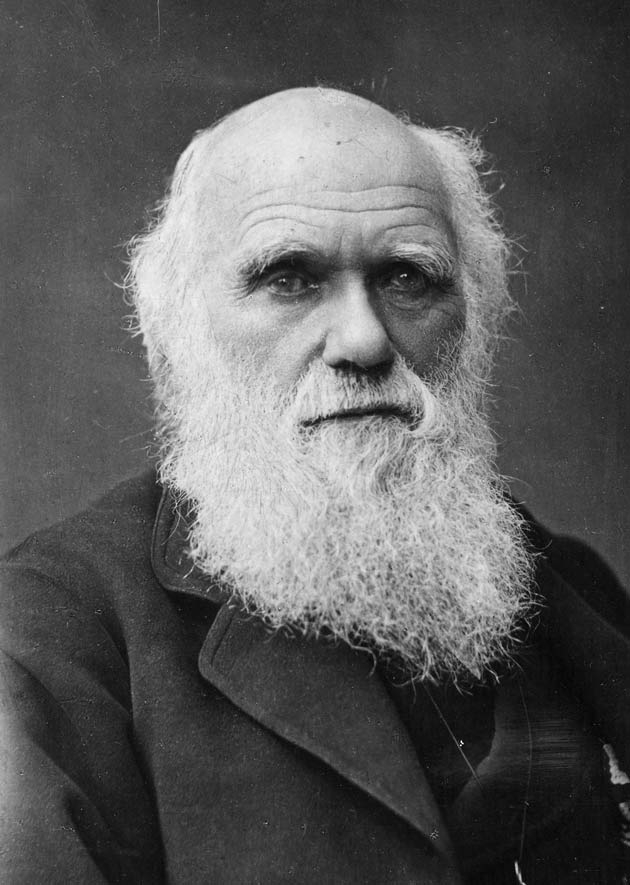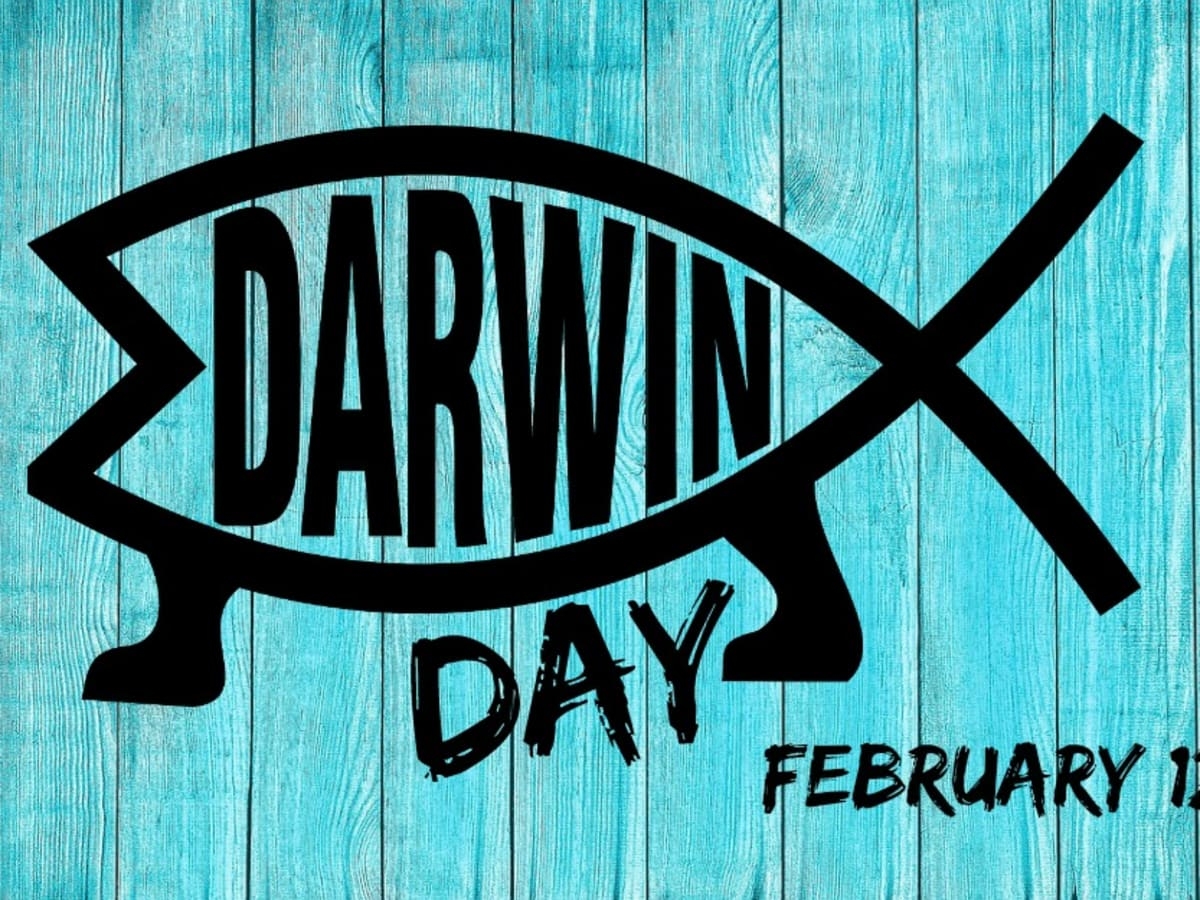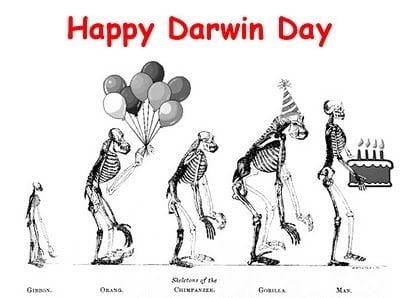International Darwin Day: History, Celebration and Significance
 |
| Darwin. Photo: Live Science |
International Darwin Day History
Darwin Day celebration began with three Darwin enthusiasts: Dr. Robert Stephens, who motivated the community of Humanist in Silicon Valley to initiate an annual Darwin Day celebration in 1995; Prof. Massimo Pigliucci, who organised an annual Darwin Day event at the University of Tennessee in 1997 and Amanda Chesworth, who joined Stephens to officially incorporate the Darwin Day Program in 2000 in New Mexico. Two years later, the Darwin Day celebration was reincorporated in California as the Darwin Day Celebration to encourage science and humanity throughout the globe. It was incorporated under 501 (c) (3) a non-profit educational corporation that promotes public education about science. In the United States, it was made an official holiday due to House Resolution 67 which designated 12 February as Darwin Day in the US in 2015.
When Charles Darwin published the book "The Origin of Species" several scientists, artists, scholars, etc. gave tributes throughout the world. On the 100th anniversary of Charles Darwin in 1909 large celebrations were held in Cambridge, New York and New Zealand for his contributions to science and humanity. In 1959, the University of Chicago commemorated the 100th anniversary of the publication of the Origin of Species with a series of events from 24 November to the 28th November, according to Jagranjosh.
Some advantages of the theory of evolution
Since the 19th century, when Darwin forwarded his theories, advances in scientific understanding of life have improved drastically.
Richard Dawkins, an eminent biologist, has shown that life can develop itself into increasingly complex forms and totally rejects the idea of an external designer.
The repercussions of these discoveries are wide-ranging and awe-inspiring! Darwin’s life and work continuously impact science and humanity. His discovery of natural selection as the mechanism for evolution paved the way for a fuller understanding of our place in the universe.
Without the discovery of natural selection, the greatest achievements in health, philosophy, and human well-being over the past two hundred years would have been impossible, as reported by Simbatoysindia.
International Darwin Day Celebration
 |
| Photo: Owlcation |
Support for Darwin Day comes from both the secular and religious communities. Many Christians accept evolution and believe that it was a tool used by God in the creation process.
However, freethought organizations are the groups most enthusiastic in their support of Darwin Day. Atheists celebrate Darwin Day not because they worship Darwin (as some theists like to say), but because they admire him. They admire both his accomplishments and his courage.
Darwin showed enormous courage when he published his theories that challenged the prevailing Christian world view. Darwin was fiercely criticized and ridiculed, but he persevered with his research, collecting ever more evidence is support of his conclusions.
In various ways Darwin Day is celebrated all over the globe. People can visit a natural history museum, can attend exhibitions, exhibits on evolution, they can read The Origin of Species his book and one of his famous invention or theory. Even on social media several posts are shared by the people to celebrated and honour Charles Darwin.
Several events are conducted on Darwin Day around the world. Also, the birthplace of Darwin i.e. Shrewsbury began 'Darwin Festival' in 2003 which now lasts the full month of February.
Darwin Contributions
Science
Charles Darwin is considered to be the founder of evolution science. His basic theory was presented in his book On the Origin of Species and his later book The Descent of Man. Darwin was a naturalist (a person who studies nature) who made a five year round the world trip on H.M.S. Beagle. During this trip he collected fossils and specimens and studied the botany, geology, and biological diversity in many different regions.
In nutshell, Darwin concluded that through a process he called "natural selection" species that successfully adapted to meet the changing requirements of their natural habitat thrived, while those that failed to do so died off.
As science progressed after the death of Darwin, his theories were borne out and refined. Darwin did not have the benefit of DNA; his discoveries were made through careful observations of the natural world and deductions.
A study of Darwin’s early life shows how his family and education were crucial influences on his body of work and his place in history.
Education
Darwin attended the traditional Anglican Shewsbury School between 1818 and 1825 Science was frowned upon at this school—it was considered dehumanizing. Darwin’s interest in chemistry was mocked. Darwin hated the rote learning favored at this school and he did not do well there.
His father then sent him to Edinburgh University to study medicine (1825-1827). Although Darwin loathed the practice of medicine, he received an excellent education in science. Darwin was taught chemistry, geology and zoology. He also learned about the classification of plants by the then modern “natural system.”
Robert Edmond Grant, a biologist and early evolutionist, became a mentor to Darwin. Grant, an expert on sponges, was studying the relationships of primitive marine invertebrates. He believed his work would lead to understanding the origin of more complex creatures.
Grant encouraged Darwin to study invertebrate zoology. Consequently, Darwin began to study the larval sea mat (Flustra). He presented the results of his observations at the student societies.
Darwin was also exposed to the ideas of free-thinkers at Edinburgh University. At the time, this university harbored many students who were part of a group known as the “English Dissenters” because they refused to conform to the teachings and practices of the Church of England. This community exposed Darwin to radical ideas—Divine design of anatomy was disputed and materialism (the unity of mind-body) was proclaimed.
Darwin attended Edinburgh University for only two years. These years were formative years for him. They introduced him to the pursuits of science and predisposed him to his eventual rejection of religious doctrine.
In 1828, Darwin’s father sent him to Christ’s College, Cambridge to study for the ministry. Darwin’s father thought the Church was the best place for his son whom he viewed as an aimless naturalist, as reported by Owlcation.
Darwin’s Religious Views
 |
| Photo: Cork Humanists - Weebly |
Darwin and his wife Emma were Unitarians, but they were active in their parish church which was Anglican.
It is difficult to say what Darwin actually believed. The difficulty is that throughout his life Darwin’s views were evolving away from belief to non-belief. He began by loosing his faith in the New Testament stories of Jesus Christ and eventually came to lose belief in God also.
In 1876, Darwin wrote in his autobiography that although he was “very unwilling to give up my belief [in God]…disbelief crept over me at a very slow rate, but was at last complete. The rate was so slow that I felt no distress and have never since doubted even for a single second that my conclusion was correct."
Darwin, who had once studied to become a clergyman, was essentially an atheist. I use the word “essentially” to define atheist because Darwin never called himself an atheist. He had adopted the term, agnostic, a term coined by his friend Thomas Henry Huxley.
Darwin died on April 19, 1882. The stories of a deathbed conversion back to Christianity are bogus and are denied by Darwin’s family as well as by many Christian groups. For the last three decades of his life and up to the moment of his death, Charles Darwin was a non-believer.
The Influence of Darwin’s FamilyCharles Robert Darwin (1809-1892) was born to a well-off family. His father was Robert Waring Darwin and his mother was Susannah Wedgwood. The family’s wealth meant that Darwin could attend the best universities. It also meant that Darwin had no financial constraints upon his ability to pursue his interests in science. Darwin’s family also provided a rich intellectual heritage. Darwin’s father was a medical doctor and his paternal grandfather was Erasmus Darwin, a freethinking physician who wrote Zoonomia; or the Laws of Organic Life (1794-96), a two-volume medical work that dealt with anatomy and the functioning of the body, pathology, and psychology and also included early ideas about evolution. Darwin’s family also predisposed him to become a free-thinker, a person who forms his ideas and opinions through the use of independent reason even when his reasoning differs from established belief, especially religious belief. As noted above, his paternal grandfather was a freethinker. Additionally, his maternal grandfather, Josiah Wedgewood, was a Unitarian. Unitarianism was a religious sect that broke away from mainstream Protestantism because of its denial of the doctrine of the trinity. |
For interesting news of KnowInsiders, check out below!
 World Marriage Day: History, Symbol and Theme World Marriage Day: History, Symbol and Theme Marriage has been an important part of our life that officially links two people together. World Marriage Day is celebrated to honor married couples for ... |
 How to move your WhatsApp chat history to Telegram: Simple Tips, Step by step guide, Everything to Know How to move your WhatsApp chat history to Telegram: Simple Tips, Step by step guide, Everything to Know Telegram now lets departing WhatsApp users move their chat history over to its app. This could be the one feature that’ll tip over WhatsApp users ... |
 What is National Voters' Day: History, Importance And Celebrations What is National Voters' Day: History, Importance And Celebrations National Voters' Day is celebrated on January 25 every year. The significance of National Voters' Day is to encourage more young voters to take ... |























